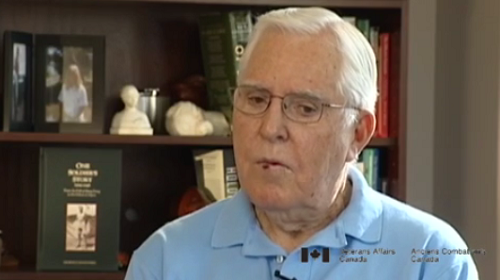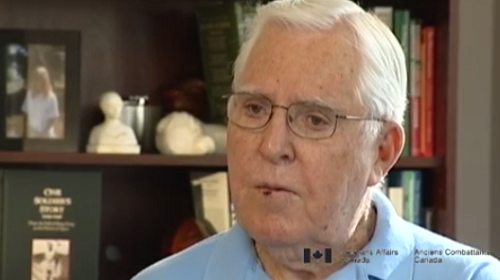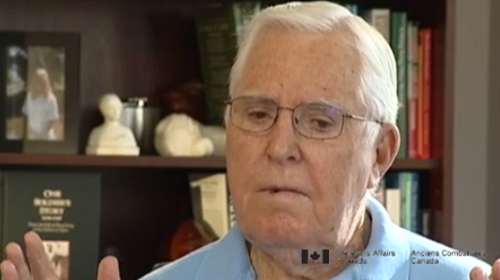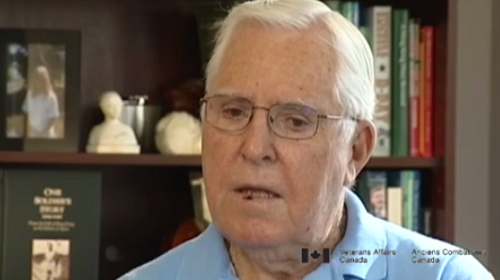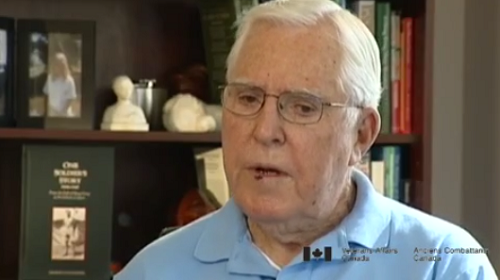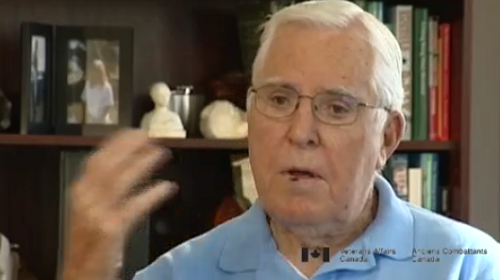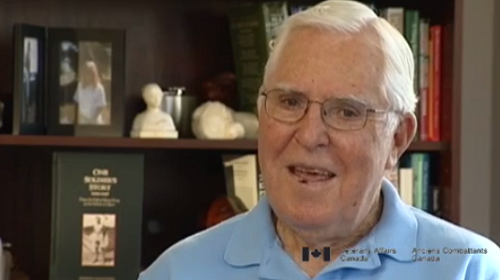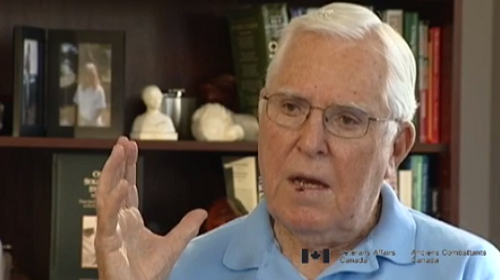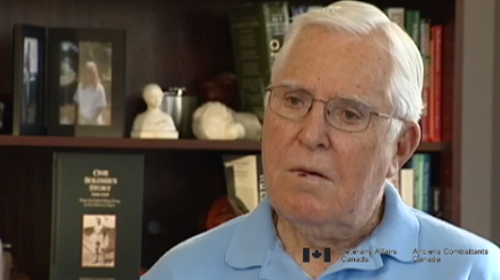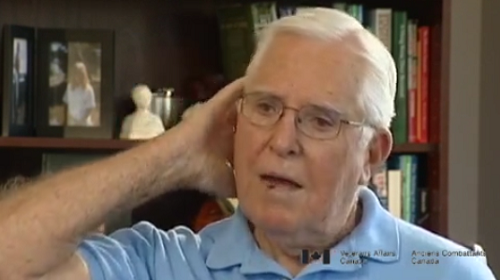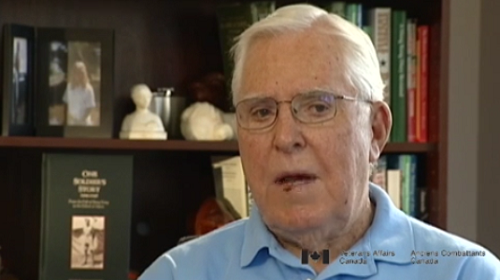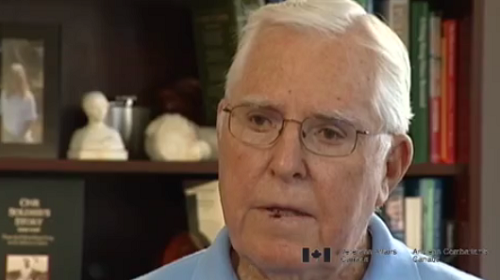American Contribution to POW Survival
Heroes Remember
American Contribution to POW Survival
Transcript
Description
Mr. MacDonell praises the contributions made by the American Army. Their level of generosity and concern for their well being was overwhelming.
George MacDonell
Mr. MacDonell was born in Edmonton, Alberta on August 15, 1922. He lost his parents at an early age and was raised by his uncle and family. In 1939, he ran away from home and made the decision to join the army. Mr. MacDonell served as Company Sergeant Major during the Battle of Hong Kong and in 1941 was captured and was a POW for four years. Post-military, Mr. MacDonell earned his Bachelor of Arts at the University of Toronto and went on to have a successful business career. Mr. MacDonell is very active in his city and very proud of having served. Mr. MacDonell is retired and resides in Toronto, Ontario.
Meta Data
- Medium:
- Video
- Owner:
- Veterans Affairs Canada
- Duration:
- 3:31
- Person Interviewed:
- George MacDonell
- War, Conflict or Mission:
- Second World War
- Battle/Campaign:
- Hong Kong
- Branch:
- Army
- Units/Ship:
- Royal Rifles of Canada
- Occupation:
- Vehicle Technician
Related Videos
- Date modified:




